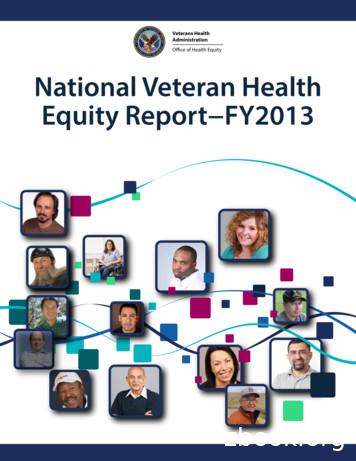
DAV pushes the VA to address disparities in minority veterans’ care, outcomes
As the nation’s largest integrated health care system, the Department of Veterans Affairs serves a growing racially and ethnically diverse population. Minorities have served in every American conflict since the Revolutionary War and, since 1990, are joining the military in ever-increasing numbers. Likewise, minority veterans are turning to the VA in increasing numbers for the care of their service-connected conditions following military service.
According to the VA’s 2017 Minority Veterans Report, service-disabled Black veterans had the highest rate of health care use among VA patients (77.4%), followed by disabled Hispanic veterans (71.5%). Yet, despite such high care rates among these minority patient populations, and the organization’s focus on improving quality of care for its veteran patients, the VA’s own systematic review found it has not been completely successful in eliminating racial and ethnic disparities in veterans health care and health outcomes.
More than a decade ago, VA researchers looked at which clinical areas racial and ethnic disparities are most prevalent, the root causes for disparities and solutions for improving equity in VA health care for all veteran patients. A variety of factors can contribute to differences in treatment and health outcomes for minority patients, including socioeconomic issues; language and communication barriers; and lack of access to transportation and health education.
Studies have found there may also be implicit, albeit unintentional, biases on the part of clinicians that can unknowingly influence clinical evaluation and care recommendations for minority patients. Such biases can lead to poor health outcomes—or limit viable treatment options for these patients. Provider trust is also shown to be lower among minority and LGBT veterans, which can impact health outcomes due to a more limited exchange of information between a physician and a patient.
DAV members adopted Resolution No. 373 at the 2019 national convention, calling for the VA to identify and address determinants that hinder minority veterans’ health outcomes and access to care. The issue is now one of DAV’s critical policy goals for the 117th Congress.
“Ending racial inequities in VA care is a very important issue to DAV members,” said National Legislative Director Joy Ilem. “Learning more about racial and ethnic disparities is critical to identifying opportunities to effect change, and we’re very excited to hear about some of the cutting-edge research projects the VA has planned to look at this issue.”
In February, the VA announced it had launched a new custom-built genomic tool as part of its Million Veteran Program (MVP), one of the world’s largest and most diverse genomic databases in the world, to help VA researchers learn more about how medical conditions such as diabetes, cancer and heart disease affect minority veteran populations.
“This is potentially a game-changer in medical research for Black and Hispanic veterans and other members of minority and ethnic and racial groups,” said acting VA Under Secretary for Health Dr. Richard A. Stone. “Thanks to MVP, VA is leading the way in health research that will benefit communities that have traditionally been underserved by the health care system and underrepresented in medical research.”
“Our nation owes all veterans the highest quality of care possible,” said National Commander Butch Whitehead. “The VA has the ability to make real progress in reducing racial inequalities in health care, and we need to ensure the department’s research program is sufficiently funded to continue this critical work. “It is up to all of us to strive for a more equitable health care system for all veterans who rely on VA care.”
Credits / Original source
MATT SAINTSING / https://www.dav.org/learn-more/news/2021/equity-in-care/









